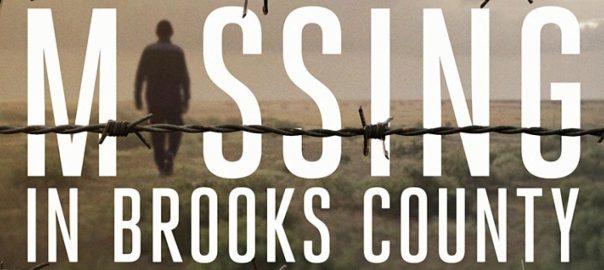It is about a week before the 2025 Beyond Borders Humanitarian Team’s mission to Brooks County, TX, as I write this. I am fortunate enough to have participated in last year’s mission. I have trekked through the heat and harsh vegetation, filled water barrels along frequent migrant routes, and helped recover individuals who fell during their journey. Nonetheless, the preparation for this trip remains as challenging as ever, both physically and mentally. Even now I am haunted by the potential atrocities we may encounter and what the future holds for migrants.
Since last year’s trip, I have done my best to advocate for and educate those around me about the human rights crisis at the southern border. It remains a silent issue despite sharing my personal experiences, providing links to this blog and additional resources, and inviting speakers to discuss the crisis. Brooks County is the site of a large mass disaster largely ignored and hidden in plain sight. After last year’s trip, I felt empowered by the purpose I found and the positive impact I made through search and recovery efforts. However, since returning, that sense of empowerment has been replaced by deep guilt and sadness.
I am not the first to say I am an extremely emotional person. I always have taken the experiences and emotions of others to heart making the written and oral stories I’ve read and heard so deeply disturbing and heartwrenching. It is neither fair nor just that such tragedies occur at the border. Ones in which no one should have to experience. This crisis is a matter of life and death—a stark and devastating reality at the U.S.-Mexico border.
In preparation for the upcoming trip, I decided to rewatch Missing in Brooks County, a 2021 documentary about the human rights crisis at the border. The film highlights the heartbreaking stories of individuals who have gone missing and the desperate efforts of their families to find them, aided by humanitarian groups like The South Texas Human Rights Center, Remote Wildlands Search and Recovery, Beyond Borders, Texas State, and others. Stories of people like Homero Roman Gomez and Juan Maceda Salazar.
At certain points in the documentary, you see conversations where family members send text messages to their loved ones crossing the border—desperate pleas asking where they are, if they are okay, and begging for a response just to know they are alive. The silence is deafening. It’s often said you cannot truly understand someone’s pain until you walk in their shoes. In 2022 I had a similar occurrence with my own family. I will never forget the overwhelming anxiety and terror I felt trying to reach them. I must have called more than a dozen times, left voicemails, and hundreds of messages. Inconsolable and completely in the dark, all I could do was think about every and any possible thing that could have happened. The anxiety making myself physically sick. The difference is that my situation was resolved after a couple of hours with my loved one being found alive and safe. Unfortunately, this is not the reality at the border. The harsh reality is that only a very small portion of missing migrants are ever found alive or dead.
Regardless of opinions or beliefs, the events at the border are not just numbers or statistics. They are real people—real mothers, real fathers, and real children with families who worry about them. I urge everyone reading this to imagine being in the shoes of a migrant’s family. Would you not want people doing their very best to locate your loved one?
I am fortunate to have been selected to join Beyond Borders in helping these families and ensuring that migrants are treated with the respect and dignity they deserve. I look forward to continue providing even the smallest change to the crisis and reuniting people to their families.
Please take some time and watch Missing In Brooks County to learn more about the crisis and work Beyond Borders works to do.
